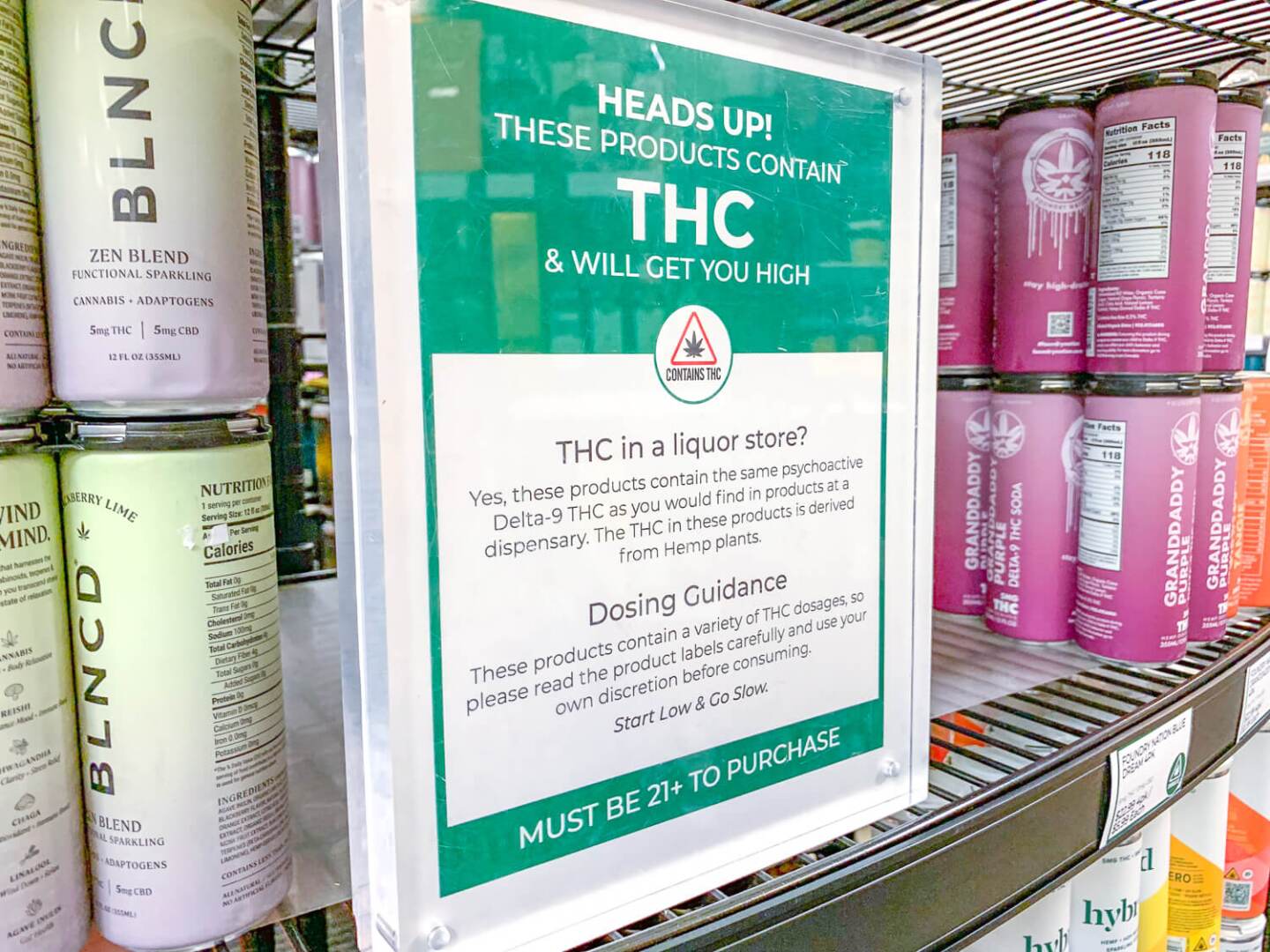Ten applicants seeking retail hemp licenses may have to wait until next March or longer after the Rhode Island Cannabis Control Commission paused issuing new licenses pending the completion of a study on regulating intoxicating THC beverages sold in liquor stores and bars.
The three-member panel voted unanimously at its monthly meeting Friday to temporarily suspend taking applications and granting new licenses. Liquor stores, bars and restaurants have been able to take part in the legal hemp market since last summer.
As of Friday, the office had 10 pending initial applications for CBD/hemp retailer or distributor licenses and one retailer pending renewal, commission spokesperson Charon Rose wrote in an email to Rhode Island Current. Rose did not immediately provide the list of hemp vendor applicants.
Matthew Przygoda, the adult non-alcohol category manager for Craft Collective Homegrown Beverage Distributors in Bellingham, Massachusetts, told the commission that halting new licenses disrupts entrepreneurs and small businesses trying to enter the space legally.
“No one is better-equipped to verify age and ensure responsible dispensing than our on-premise retailer partners,” he said.
Brian Oakley, who co-owns Julian’s in Providence, asked the commission to reconsider its vote, calling it potentially disruptive to customers who have grown used to seeing THC drinks available in restaurants like his West End neighborhood spot.
Julian’s was granted a license to sell hemp products on Dec. 3, 2024, according to state records.
“I’ve witnessed people come into a bar, restaurant and are excited when they see the placement of the product,” Oakley said.
Cannabis cultivators oppose allowing THC products to be sold outside licensed pot shops, arguing that products — that mostly come from out-of-state — are not held to the same standards as what’s grown and manufactured in Rhode Island.
“We’ve spent so much time not crossing those two things, THC and alcohol,” Jason Calderon, the vice president and CEO of Bonsai Buds, an Exeter-based cannabis cultivator, told commissioners. “The only benefit that I see are the liquor stores and bar industry having another revenue source.”
Study to look at dosage limits, labeling, protecting kids and more
Lawmakers heard from both sides this spring and held their own debates on what to do about THC drinks already being legally distributed and sold by 120 licensed hemp retailers and distributors.
Ultimately, the General Assembly passed companion resolutions requesting the Cannabis Control Commission conduct a study to come up with recommendations on dosage limits, packaging standards, labeling requirements, licensing conditions, and other ways to ensure children don’t accidentally consume the intoxicating drinks. The measure calls on the commission to “consult with medical experts and appropriate state agencies and departments” including the Department of Health, the Department of Revenue, and the Department of Business Regulation. The commission’s recommendations are due to state lawmakers by March 1, 2026.
The study was written into the state’s fiscal 2026 budget, which took effect July 1. The budget gave the commission new authority to suspend licenses — a power previously held by the Rhode Island Department of Business Regulation before the transfer of oversight to the newly-established Cannabis Office.
The halt in new hemp licenses comes as regulators weigh whether to create new frameworks surrounding social consumption, such as the possibility of allowing cannabis cafes.
“It needs more time to be studied as there are many policy complexities,” Carla Aveledo, policy liaison for the Rhode Island Cannabis Control Commission, told the panel.
THC drinks derived from hemp were illegal in Rhode Island until August 2024, when the state’s Office of Cannabis Regulation began allowing the sale of products containing low levels of delta-9 THC at licensed retailers, including vape shops and liquor stores.
Hemp has been legal at the federal level since 2018. By itself, hemp produces little to no THC, the compound most commonly associated with cannabis intoxication, and is typically non-psychoactive when first harvested — unlike other cannabis plants.
But with the magic of chemistry, delta-9 and less potent delta-8 THC can be produced.
Infusing THC with a drink requires an emulsifier stable with the pH balance of whatever the drink is, as cannabis is typically concentrated into an oil, Stuart Procter, co-founder and lab director for cannabis testing facility PureVita Labs in West Warwick, told commissioners.
But since hemp-derived drinks come from out-of-state, Procter said they’re not guaranteed to all be held to the same standards
“If it’s not been tested by a state-certified laboratory, it’s difficult to say what’s on the side of the tin is what people are getting,” Procter said.
Even slight heat can reduce the product’s potency, Procter said in an interview after the meeting.
“And when you drink it, you don’t get anything,” he said. “So you’d have to drink a lot more.”
This story was originally published by the Rhode Island Current.










